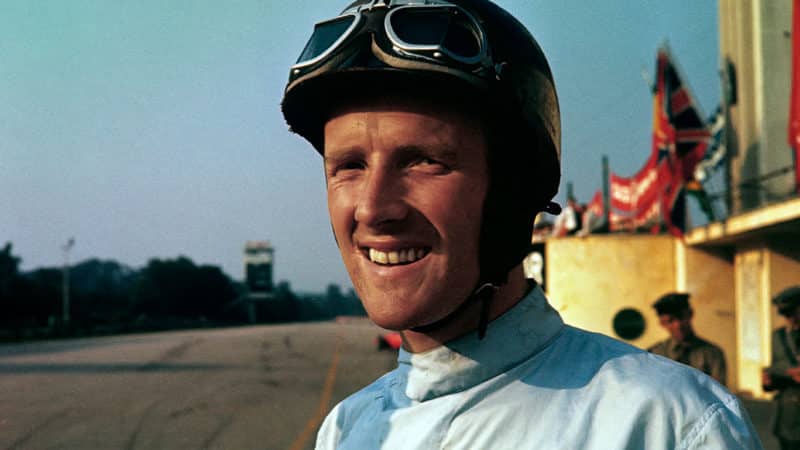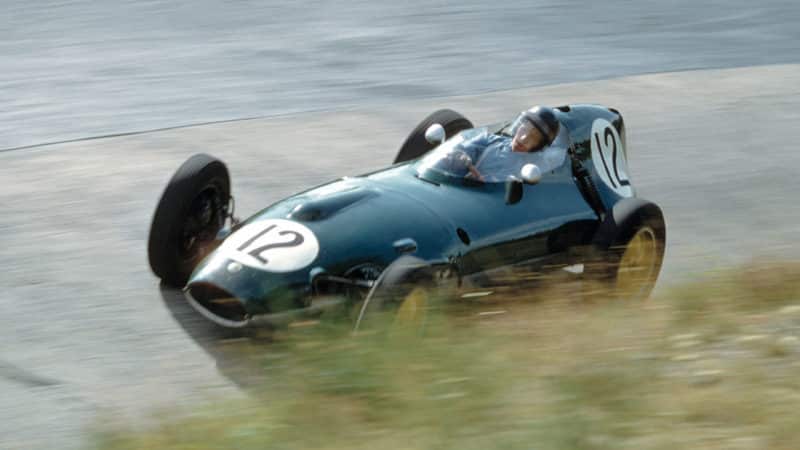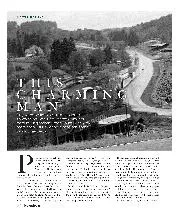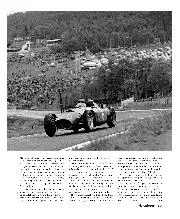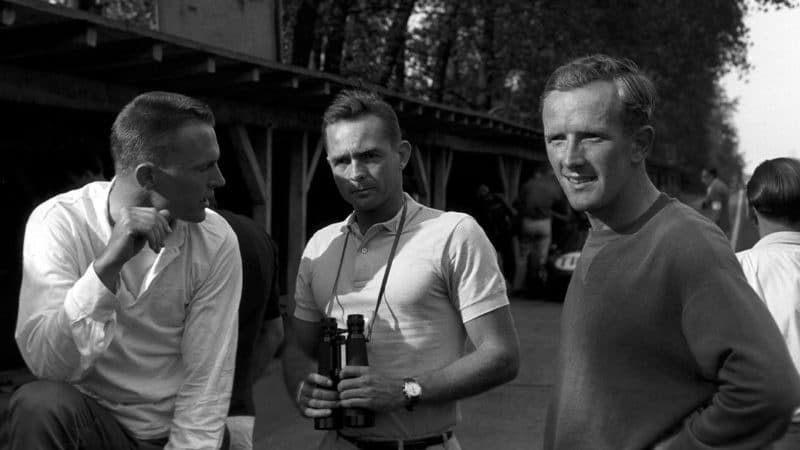“I’d started from the second row, with the two other Ferraris of Phil Hill and Taffy von Trips. I decided that I was going to run right through without a pitstop, I felt that was the way to go. Now Dunlop had two tyres out there: one with 5mm tread for those making a pitstop and one with a 7mm tread if you were going non-stop.
“Just before the race Dunlop’s Vic Barlow said, ‘Oh Cliff, we’ve put the wrong tyres on your car.’ They had me on the 5mm treads but I had full tanks. So I said, ‘How will I know when they’re worn out?’ and he told me a white strip would appear on one side, then the other side and when a third strip appeared between them it meant they were totally bald.
“So I just bided my time in the early laps. I think I was about fourth or so. Moss‘ Cooper and Bonnier’s BRM were leading but they both fell by the wayside and eventually it was just Bruce McLaren’s Cooper and me. I was catching him, but all the time I’m worrying about my tyres and just pushing as hard as I dare.
“I’d got to within six seconds of him with 10 laps to go but by then all the white strips were showing and I had a little struggle with myself whether to throw caution to the wind or just back off and make sure I held on to second. Well, I backed off and settled for second, well ahead of the other Ferraris.”
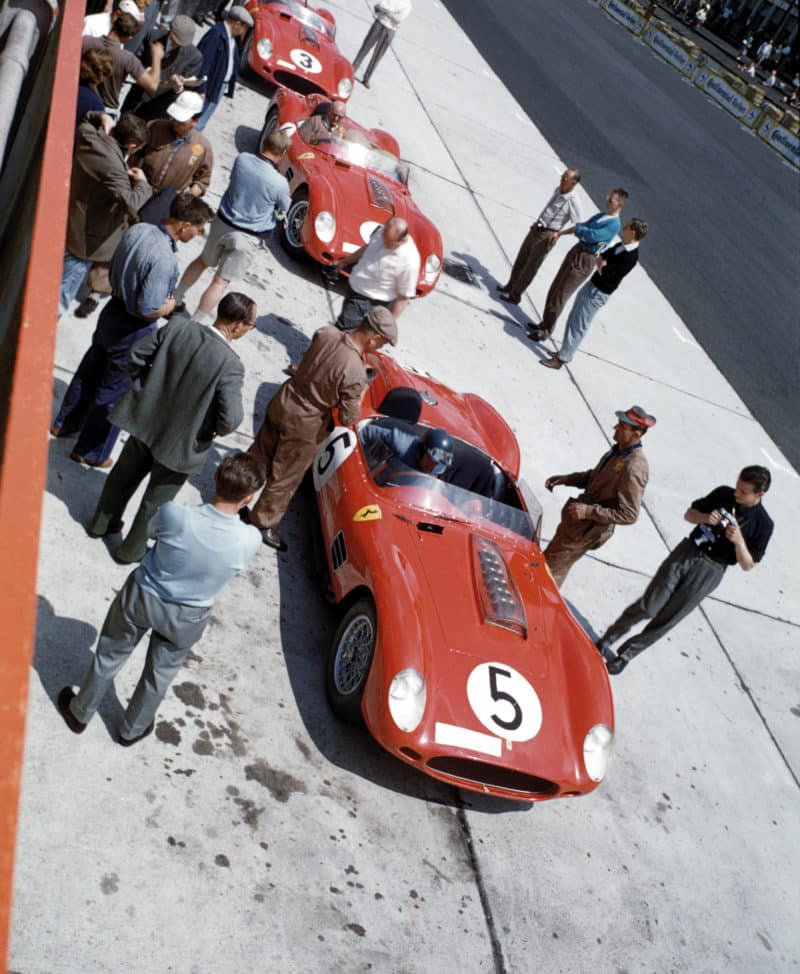
Allison settles into the cockpit of the Ferrari TR/59 he is to share with Dan Gurney during the Nürburgring 1000km in June 1959
Getty Images
He lived in Brough – a market town in Cumbria – for all his life, even as a Ferrari driver. “Yes, it wasn’t too bad, really. I’d drive to Darlington, park the car at the station, get the train to Kings Cross, a taxi to the bus station where I’d get the bus to Heathrow, fly to Milan, taxi to the train station there, train to Modena, then another taxi. I once did this for a test that they wanted to do and when I got there I found they’d cancelled the test! So I set off back home again!”
He paid his own expenses but got a share of the prize money. Hence results like victory in the 1960 Buenos Aires 1000km, sharing with Phil Hill, were especially important.

